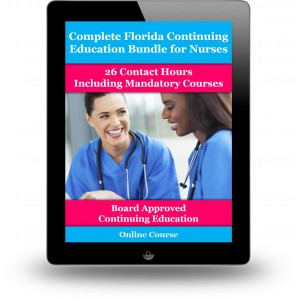- Home
- About Us
- CE Accreditation
-
CE Courses
- Nursing CE Courses
- Advanced Nursing Practice
- Critical Care Nursing
- Disaster and Terrorism Management
- Emergency Nursing
- Ethics, Legal and Advocacy
- Infection Control and Community Nursing
- Gerontology
- Leadership and Management
- Medical-Surgical Nursing
- Nursing Sciences
- Nursing Skills and Procedures
- Pediatric Nursing
- Perioperative Nursing
- Pharmacology
- Psychiatric / Mental Health
- State-Required Courses
- Teaching and Preceptorship
- CE Course Bundles
- Medical CME Courses
- Inservice Courses
- Nursing CE Courses
- CE Certification
- FAQ
- Contact Us
Details
Human trafficking is a pervasive, often hidden crime that affects vulnerable individuals of all ages and backgrounds and many victims access healthcare without being identified. Human Trafficking: A Practical Guide for Healthcare Providers is an essential continuing education course designed to help clinicians recognize the red flags of trafficking, intervene safely, and respond appropriately. Enroll now to meet mandatory training requirements and gain practical tools to improve patient advocacy, safety, and care coordination in clinical settings.
This course provides a comprehensive, evidence-informed overview of human trafficking, tailored to the realities of healthcare environments. Nurses, physicians, and allied health professionals will learn how to identify indicators of labor and sex trafficking, respond using trauma-informed care principles, and comply with legal mandates and reporting requirements. The course also highlights high-risk populations, communication strategies with potential victims, and institutional protocols that support effective intervention while ensuring provider safety and patient confidentiality.
Topics covered include:
- Overview of Human Trafficking: Definitions, types, and scope of trafficking in the United States and globally.
- Vulnerable Populations and Risk Factors: Identifying patients at increased risk, including minors, undocumented individuals, LGBTQ+ youth, and those with prior abuse histories.
- Recognizing Red Flags in Clinical Settings: Behavioral, physical, and contextual indicators of trafficking during routine visits and emergency care.
- Communication and Interviewing Techniques: How to engage suspected victims using trauma-informed, non-judgmental language in private, secure environments.
- Legal and Ethical Considerations: Reporting requirements by state, HIPAA exceptions, mandatory reporting laws, and coordination with law enforcement and social services.
- Institutional Protocols and Resources: Developing workplace policies, referral pathways, and partnerships with local and national anti-trafficking organizations.
- Case-Based Learning: Realistic clinical scenarios demonstrating appropriate recognition, documentation, and multidisciplinary response.
Completion Requirements:
To earn full CE credit hours, participants must:
- Register for the course.
- Complete all course content and readings.
- Pass the post-test with a minimum score of 70%.
- Submit the course evaluation survey.
Optional resources such as downloadable reference guides and survivor-informed toolkits may be provided to enhance long-term retention
Important Disclosures:
- Conflict of Interest: No relevant financial relationships or conflicts of interest were reported by the planners, authors, or instructors.
- Commercial Support: This course has received no external sponsorship or commercial funding.
- Non-Endorsement: Accreditation does not imply endorsement of any product, service, or commercial entity.
- Off-Label Use: This course does not discuss unapproved or off-label use of medications or devices.

Key Course Benefits:

- CE Credit Hours: 2 CE Contact Hours, automatically reported to CE Broker.
- Trauma-Informed Clinical Training: Equips providers with the tools to safely and effectively assist victims of trafficking.
- Meets Mandatory Training Requirements: Satisfies many state-level and institutional requirements for human trafficking education.
- Immediate Clinical Relevance: Designed for practical use in emergency departments, urgent care, primary care, pediatrics, and behavioral health.
Approvals and Accreditation:
The National Healthcare Institute (NHI) is an approved provider of continuing education by:
- Florida Board of Nursing
- Registered Nurse, Clinical Nurse Specialist, Advanced Registered Nurse Practitioner
- District of Columbia Board of Nursing
- Registered Nurse, Nurse Anesthetist, Clinical Nurse Specialist, Midwife, Advanced Practice Nurse
- Georgia Board of Nursing
- Registered Nurse
All NHI continuing education programs meet the standards of the American Nurses Credentialing Center’s Commission on Accreditation, ensuring clinical relevance, quality, and compliance with professional guidelines





